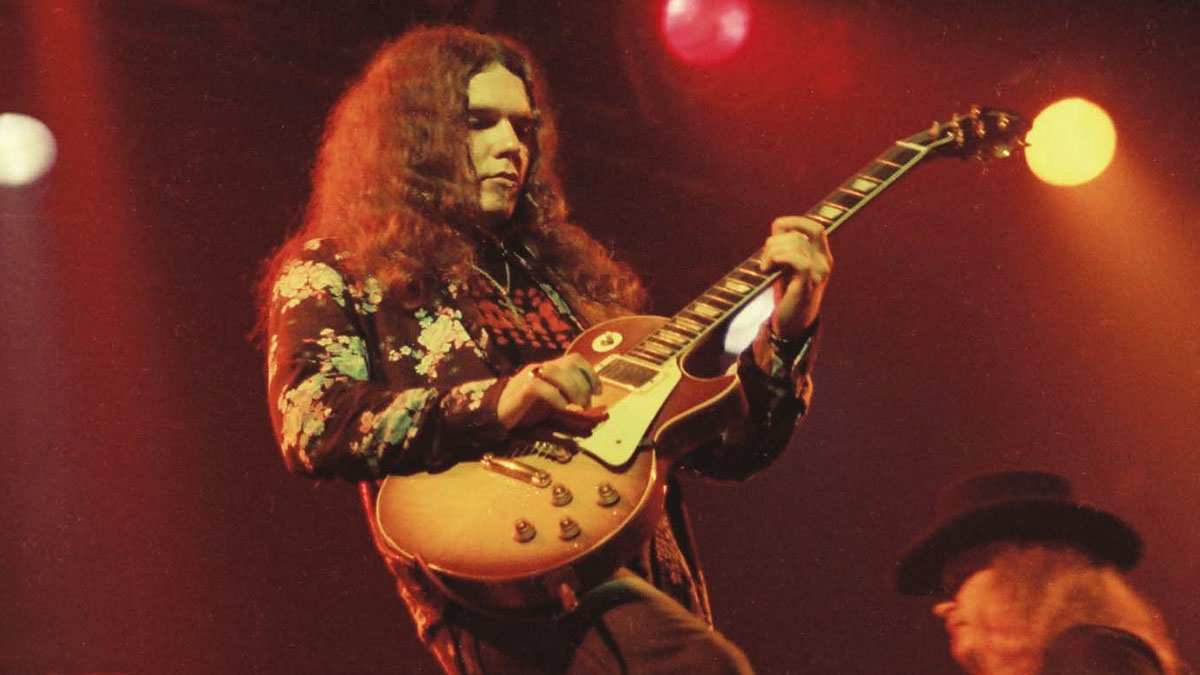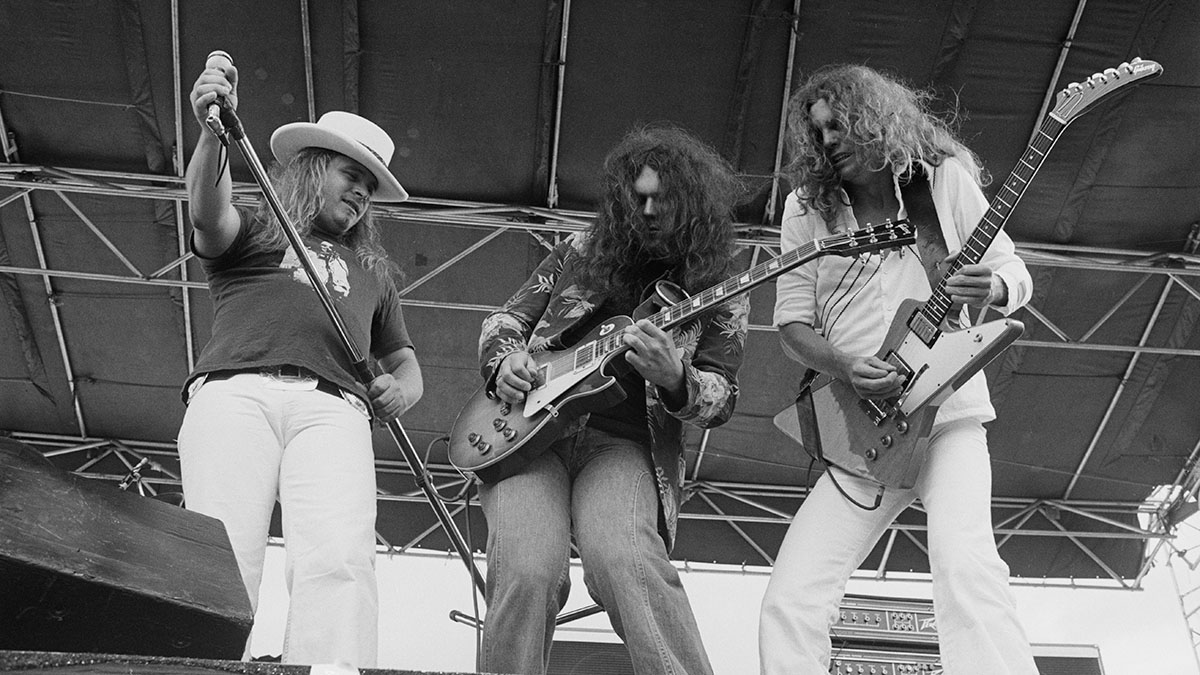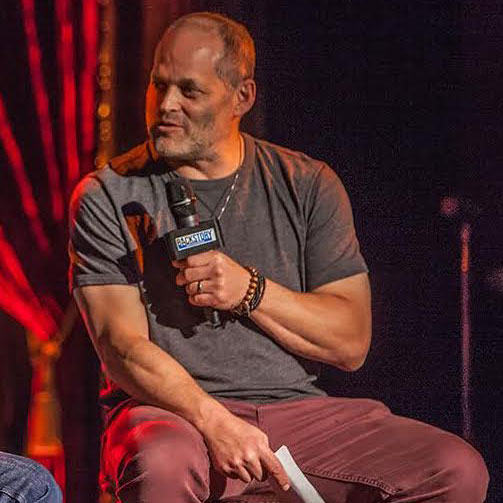
As Guitar World’s unofficial Southern rock correspondent for the past 33 years, I interviewed Lynyrd Skynyrd guitarist Gary Rossington, who passed away March 5 at age 71, many times over many years. He was always insightful, good natured and happy to talk.
A few conversations really stand out. Circa 1996, we did a great phone interview, speaking at length about his sobriety, which was quite new at the time. Shortly after we hung up, my office landline rang again.
“Alan, it’s Gary. I need to talk.”
“Ok, Gary, what’s up?”
“I told you a lie and it’s really bugging me.”
He corrected himself and apologized. The “lie” he had told me was minor and inconsequential – not something that would’ve been in the story anyhow – but he couldn’t live with it. He was making amends and following the 12-step commitment to honesty, and I was touched by that.
Gary was a survivor and a fighter. Most famously, he survived the October 1977 plane crash that killed singer Ronnie Van Zant, guitarist Steve Gaines and his sister, backup singer Cassie Gaines. Rossington was the last-surviving original member of Lynyrd Skynyrd, though drummer Artimus Pyle, who joined the band later and survived the crash, is still with us.
Get The Pick Newsletter
All the latest guitar news, interviews, lessons, reviews, deals and more, direct to your inbox!
All of the crash survivors were badly injured. Bassist Leon Wilkeson had his broken arm set in such a way that he had to play in an upright position, prompting me to once ask Rossington if the metal plate he had inserted in his left arm forced him to alter his playing style in any way.
“Not really,” he dryly drawled. “I just had to get used to constant, day-in, day-out pain.”
He said that with a laugh, adding that he had broken “just about every bone in my body.”
Long before the crash, the members of Lynyrd Skynyrd had a reputation for hard living, heavy drinking and regular brawling, and without a doubt, their lifestyle fortified their music with intensity, grit and honesty.
“The way we lived came out in our instruments, our singing and our songwriting,” Rossington said. He recalled an early studio engineer saying that they always looked mad when they played. “We weren’t always mad,” he said. “But we learned to play hard and mean.”
The group’s three core founding members – Van Zant, Rossington and guitarist Allen Collins – abandoned baseball and turned to music in eighth grade after seeing the Rolling Stones on The Ed Sullivan Show. And although seeing Gregg and Duane Allman, as well as Dickey Betts and Berry Oakley’s pre-Allman Brothers group Second Coming, had a profound impact on the young musicians, British blues-based riff rockers remained their guiding lights.
“We were influenced by Cream, the Yardbirds, Free, the Animals, the Stones and the Beatles,” Rossington said. The underlying key to their sound was filtering that British blues rock sound through their own Jacksonville, Florida, sensibilities and marrying it all with Van Zant’s country-tinged songwriting and singing. “Ronnie was really a country singer in a rock ’n’ roll band,” Skynyrd guitarist Ed King said.
We weren’t always mad. But we learned to play hard and mean
Gary Rossington
Collins and Rossington had distinctly different styles, as did King and Steve Gaines, who joined the band in 1977, and every other picker who served in the band since their reunion.
One thing that always held them together and kept them out of each other’s way was Rossington’s sturdy, crunchy, rooted playing and his ability to not over play and to stay out of everyone else’s way. “We even share solos,” Rossington said. “I think having the different sounds keeps things interesting – especially live, when you never know who’s doing what.”

Two years after the crash. Rossington and Collins formed the Rossington Collins Band, which also included Wilkeson and Skynyrd pianist Billy Powell. Wanting to develop their own sound and avoid comparisons with Lynyrd Skynyrd, the group hired female lead singer Dale Krantz, a move that was as savvy as the Allman Brothers Band replacing Duane Allman with pianist Chuck Leavell; the best way to replace an irreplaceable legend is to pivot.
Krantz and Rossington were married in 1982 and she survives him. The Rossington Collins Band released two strong albums before disbanding.
Sadly, Collins remained dogged by tragedy. His wife Kathy died while miscarrying their third child in 1980. His drinking and drug use were out of control, and in 1986, he crashed his car into a ditch, killing his girlfriend and sustaining injuries that left him paralyzed from the chest down. He died in 1990.
Collins served as a non-playing musical director when Lynyrd Skynyrd reunited in 1987 for a Tribute tour with Van Zant’s brother Johnny on lead vocals, and then again in 1991. Though it would’ve been impossible to predict it at the time, they’ve pretty much stayed together ever since. No one was more surprised by that than they were.
“It’s amazing,” Rossington said. “After the plane crash, I honestly thought we’d never play together as Lynyrd Skynyrd again. On the Tribute tour [in 1987], the audiences were real receptive and they knew the words to every song.”
Rossington said he was especially touched by seeing parents and children singing along together. “The people wanted us to get back together. We weren’t planning on it.”
The band kept going, recording and releasing new music through a variety of lineup changes over the ensuing 32 years. Wilkeson died in 2001 and Powell in 2009, leaving Rossington as the lone surviving original member in the group.
In 2016, Gary and Dale released Keep It on Faith, a stripped-down, bluesy album under the name Rossington. It was his first work outside of Lynyrd Skynyrd in 30 years.
“We kept getting requests from fans to do something like this again, and it was really touching that people liked Rossington Collins so much, so we really wanted to do it for them,” Rossington told me. “After all these years of being married and having kids and grandkids, it brought us back together and thinking about those early days in really nice ways.”
I last spoke to Gary last year for my upcoming book, Brothers and Sisters: the Allman Brothers Band and the Album That Defined the ’70s, which includes a fair amount about Lynyrd Skynyrd and the birth of Southern rock. He was, as ever, happy to look back at the band’s career from the perspective of a successful elder.
We spoke about the impact of the Allman Brothers Band and the power of being an aspiring musician standing in front of Gregg and Duane, who were just a few years older than them, and contemplating what it would take to be that good. But the real turning point for him, Collins and Van Zant, he said, was seeing Free at Skateland, a Jacksonville skating rink that hosted concerts some nights – after the skating.
“We had heard how good this band was and went to see them,” Rossington said. “They were late arriving, so they came dragging out Marshall amps and setting up their own gear. They were so cool looking, and then they started playing. And, man, Paul Kossoff was so good and so loud – and there was Paul Rodgers singing his ass off. We were really inspired.
“Right after that show, the three of us went out and spoke for hours about how it was time to buckle down and get tight. From the time we woke up until we went to bed, we only thought about music from that moment. We were trying to figure out how to get better, what it took. We just wanted to make our mark.”
Alan Paul is the author of three books, Texas Flood: The Inside Story of Stevie Ray Vaughan, One Way Way Out: The Inside Story of the Allman Brothers Band – which were both New York Times bestsellers – and Big in China: My Unlikely Adventures Raising a Family, Playing the Blues and Becoming a Star in Beijing, a memoir about raising a family in Beijing and forming a Chinese blues band that toured the nation. He’s been associated with Guitar World for 30 years, serving as Managing Editor from 1991-96. He plays in two bands: Big in China and Friends of the Brothers, with Guitar World’s Andy Aledort.






![[from left] George Harrison with his Gretsch Country Gentleman, Norman Harris of Norman's Rare Guitars holds a gold-top Les Paul, John Fogerty with his legendary 1969 Rickenbacker](https://cdn.mos.cms.futurecdn.net/TuH3nuhn9etqjdn5sy4ntW.jpg)







